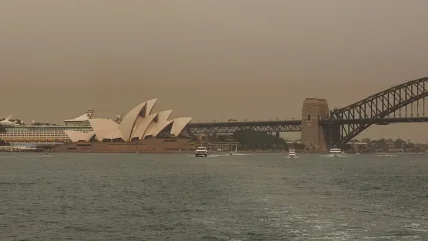
The hotel industry, like many others, is increasingly vulnerable to the impacts of extreme weather events. With climate change driving more frequent and severe storms, floods, heatwaves, and other extreme weather conditions, hoteliers must adopt robust strategies to safeguard their properties, ensure guest safety, and maintain business continuity. This article explores the various ways in which extreme weather events affect the hotel industry and provides actionable insights on how to build resilience against these challenges.
Understanding the Impact of Extreme Weather Events
Extreme weather events are becoming more common globally. According to the World Meteorological Organization (WMO), the number of weather-related disasters has increased fivefold over the past 50 years. This trend is expected to continue as global temperatures rise, resulting in more intense storms, prolonged droughts, and erratic weather patterns. For the hotel industry, this translates into higher risks of property damage, operational disruptions, and financial losses.
Case Studies: Recent Weather-Related Disruptions
Hurricane Maria: Puerto Rico’s Hospitality Sector
In September 2017, Hurricane Maria devastated Puerto Rico, causing widespread destruction and significantly impacting the island’s hospitality sector. Many hotels were forced to close temporarily due to extensive damage, loss of utilities, and a decline in tourist arrivals. The recovery process was long and arduous, highlighting the need for better preparedness and resilient infrastructure.
Australian Bushfires: Tourism Industry at Risk
The 2019-2020 Australian bushfire season was one of the worst on record, affecting large swathes of the country, including popular tourist destinations. Hotels and resorts faced cancellations, reduced bookings, and even direct damage from fires. The crisis underscored the vulnerability of the hotel industry to extreme weather and the importance of proactive disaster management plans.
Building Resilience: Strategies for the Hotel Industry
Infrastructure and Design
Climate-Resilient Construction
Hotels should prioritise climate-resilient construction techniques to withstand extreme weather. This includes using durable materials, implementing flood defences, and ensuring that buildings are designed to cope with high winds and heavy rainfall. Incorporating green building standards, such as LEED or BREEAM, can also enhance resilience while promoting sustainability.
Backup Power and Water Supplies
Reliable power and water supplies are critical during extreme weather events. Hotels should invest in backup generators and ensure they have sufficient fuel reserves. Additionally, having an alternative water supply, such as a well or water storage tanks, can be crucial during droughts or when municipal supplies are disrupted.
Operational Preparedness
Comprehensive Emergency Plans
Developing and regularly updating comprehensive emergency plans is essential for hotels. These plans should cover evacuation procedures, communication protocols, and roles and responsibilities for staff. Regular drills and training sessions can help ensure that all employees are prepared to respond effectively during a crisis.
Technology and Early Warning Systems
Leveraging technology to monitor weather conditions and receive early warnings can provide valuable time to prepare. Many hotels are now using weather forecasting tools and apps to stay informed about impending extreme weather events. Early warning systems can also be integrated into hotel management systems to automate alerts and trigger predefined responses.
Financial Preparedness
Insurance Coverage
Adequate insurance coverage is a critical component of financial preparedness. Hotels should review their insurance policies to ensure they cover a wide range of extreme weather events, including floods, hurricanes, and wildfires. Business interruption insurance can also provide financial protection against revenue losses during periods of closure or reduced operations.
Contingency Funds
Establishing contingency funds can help hotels manage the financial impact of extreme weather events. These funds can be used to cover immediate costs, such as repairs and temporary accommodations for displaced guests. Having readily accessible financial reserves can also facilitate a quicker recovery and reduce the long-term impact on business operations.
Guest Safety and Communication
Clear Communication Channels
Effective communication with guests is paramount during extreme weather events. Hotels should establish clear communication channels to keep guests informed about the situation, safety measures, and any changes to services. This can be achieved through multiple platforms, including mobile apps, social media, and in-room information systems.
Safety Protocols and Guest Education
Hotels should implement and communicate safety protocols to ensure guest safety. This includes providing information on evacuation routes, emergency contacts, and safety procedures. Educating guests about the hotel’s emergency plans can also help alleviate anxiety and ensure a coordinated response during an emergency.
Case Studies: Successful Resilience Strategies
The Bahamas: Hurricane Dorian
In 2019, Hurricane Dorian wreaked havoc in the Bahamas, causing significant damage to many hotels. However, some properties that had invested in resilient infrastructure and comprehensive emergency plans fared better. For example, the Baha Mar resort implemented a robust disaster management plan, including reinforced construction, backup power systems, and trained emergency response teams. This preparedness allowed the resort to reopen relatively quickly and continue operations, serving as a model for resilience in the face of extreme weather.
Japan: Earthquake Preparedness
Japan is prone to earthquakes, and the hotel industry has developed effective strategies to mitigate risks. Hotels in Japan are built to stringent earthquake-resistant standards, and many have advanced early warning systems that provide seconds to minutes of warning before an earthquake strikes. These measures, coupled with regular staff training and public awareness campaigns, have helped ensure guest safety and minimise disruptions.
The Role of Technology in Enhancing Resilience
Smart Building Technologies
Smart building technologies can play a crucial role in enhancing resilience. For example, automated systems can monitor and control building environments, adjusting heating, cooling, and ventilation to optimise energy use and ensure comfort during extreme weather conditions. Additionally, sensors can detect water leaks, structural stress, and other potential issues, enabling proactive maintenance and reducing the risk of damage.
Data Analytics and Predictive Modelling
Data analytics and predictive modelling can help hotels anticipate and prepare for extreme weather events. By analysing historical weather data and current trends, hotels can identify patterns and potential risks. Predictive models can provide insights into the likelihood and impact of future events, enabling hotels to take proactive measures and allocate resources more effectively.
Mobile Apps and Guest Communication
Mobile apps can enhance communication and coordination during extreme weather events. Hotels can use apps to send real-time updates to guests, provide safety instructions, and offer alternative arrangements if services are disrupted. Apps can also facilitate direct communication between guests and staff, ensuring that any concerns or needs are addressed promptly.
Sustainability and Climate Adaptation
Reducing Carbon Footprints
Reducing carbon footprints is a critical aspect of climate adaptation. By implementing energy-efficient practices, such as using renewable energy sources, optimising lighting and HVAC systems, and reducing waste, hotels can minimise their environmental impact and contribute to global efforts to combat climate change. Sustainable practices can also enhance a hotel’s reputation and appeal to environmentally conscious travellers.
Collaborating with Local Communities
Collaboration with local communities is essential for building resilience. Hotels can work with local authorities, businesses, and residents to develop coordinated disaster response plans and share resources. Engaging with the community can also help hotels better understand local risks and develop tailored strategies to address them.
Investing in Green Infrastructure
Investing in green infrastructure, such as green roofs, permeable pavements, and natural stormwater management systems, can enhance a hotel’s resilience to extreme weather. These solutions can help reduce the urban heat island effect, manage flood risks, and improve overall environmental quality. Green infrastructure can also provide aesthetic and recreational benefits, enhancing the guest experience.
Conclusion
Extreme weather events pose significant challenges to the hotel industry, but with the right strategies, hotels can build resilience and ensure long-term sustainability. By investing in resilient infrastructure, developing comprehensive emergency plans, leveraging technology, and adopting sustainable practices, hoteliers can protect their properties, ensure guest safety, and maintain business continuity in the face of increasing weather-related risks. As climate change continues to drive more extreme weather events, the importance of preparedness and resilience in the hotel industry cannot be overstated.






